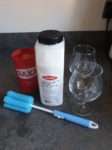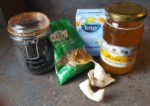Two of the first questions anybody asks about home-brewing:
- Is it cheaper to brew your own beer?
- Is home-brewing worth it?
These two questions seem alike at first glance, yet they’re really rather different.
I’m going to try to help you decide if home brewing is worth it for you, and give you a reasonable idea of the costs, so you can decide for yourself if it is cheaper to brew your own beer.
Whether home-brewing is worth it depends on what you want to get out of it.
If you’re the type of person who enjoys learning how things work, you’re an ideal candidate for home-brewing. In fact, you’ve probably already had a go, though it may be a few years ago.
If you choose to give home-brewing a go, you’ll probably find yourself seduced by the combination of art, science, and magic.
I’m not joking.
Every bottle represents a whole journey.
You started by making wort, a sort of sweet “tea” made from the extract of malted barley.
You added yeast, and you patiently waited. Watched and listened to bubbles, fascinated by them as they blub-blub-blubbed their way through the airlock. (You’ll see what I mean…)
After around a week or so, it was bottling time. But first, you tasted a little of your beer. It was beer. It was too warm to drink, really, and was completely flat, and probably looked a bit murky, but it was unmistakably beer.
And that, dear reader, was a beautiful piece of ancient alchemy. You have joined the ranks of many hundreds of generations of brewers.
If you took hydrometer readings, you also found out roughly how strong your beer was.
You bottled your beer, adding a little priming sugar, for them to naturally carbonate, left the bottles in a warm place for around a week, and then put them in the fridge.
You knew that you should leave them for a week or two, but too excited, you popped one open as soon as it was cold enough.
And that was the second bit of magic. Because as you popped the lid, you heard a “bop” and a hissing sound, and smelt the fine mist of hops and malt, exactly the same as when you open a commercially-produced beer.
Yeah, you made that. Tell me that wasn’t worth it!
And okay, it might not have been the very best beer you ever tasted. But I bet it will have been tastier than some that you have paid good money for.
After your first attempt at brewing, you’ll only get better and better results.
You’re also going to learn and appreciate what goes into a beer. As you brew more, you’ll understand the flavours and sensations you experience when you drink a beer and the processes that go on behind the scenes to make it possible.
You may choose to recreate your favourite beers, particularly if there’s an old fave that you can’t easily get hold of. (There are tons of “clone” recipes out there!)
Or there’s a beer you really like, but you wish it was a bit weaker or stronger.
You can now make the kind of beers you enjoy drinking.
You can probably guess that I do believe home-brewing is worth it!
The actual home-brewing costs
Okay, so at the most basic level, you can often buy an extract-based ingredient kit to make around 23L, and the equipment you need to brew it, for around £70, give or take.
This ought to come with a fermenting bucket with lid, an airlock, a siphon, hydrometer, thermometer, sanitiser, and enough plastic bottles to bottle your first batch of beer.
If you can’t be arsed doing the maths yourself, that comes to around £1.75 per pint for your first batch, which isn’t that cheap. But you’ve still got the equipment for your next batch.
If you buy another extract kit, it’ll cost you around 70p per pint. I think we can agree that’s a pretty good price for your second batch of beer.
You’ll probably quickly find you can use a few other bits and bobs – you might find my post on the essential beer brewing equipment useful.
But you don’t need to get carried away buying gear.
All in all, I’ve certainly spent no more than £400 on equipment. And because I mostly brew All-Grain, I often brew beer that costs around 40p per pint.
So is that cheaper?
Really, if it is cheaper to brew your own beer depends on whether you are prepared to stick with just the most rudimentary equipment, avoiding the temptation to upgrade your gear for improved convenience.
And how much beer you’re likely to brew. Since I’ve tended to brew 60-80 litres per month (3 or 4 batches of 5 gallons) I figure I recovered the costs rather quickly.
Hidden Costs
Okay, so the ingredients aren’t strictly speaking the only costs.
Electricity
Heat management devices like heat mats and immersion heater have a fairly negligible impact on bills – they use about the same as a light bulb.
My electric mashing bucket is quite heavy on electricity. It uses about 45p per hour, so still less than a quid per batch of beer.
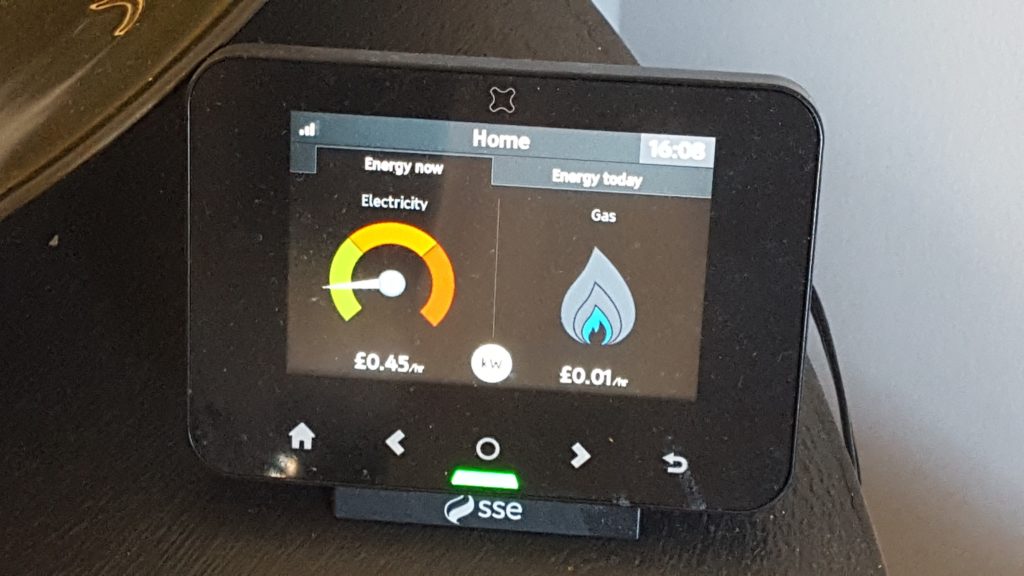
Water
I’m conscious that brewing uses a lot of water. Obviously, beer is 95% water, but beyond that, I use loads of water for cleaning. I’m not able to say exactly how much water is wasted, but I would be very keen to find ways to reduce wastage by recycling water.
Time
Let’s face it, when I say I’m producing beer for less than 50p a pint, I’m obviously not factoring in my labour.
And time is, as they say, money…
Mashing grains and boiling wort will take me two-or-three hours. Bottling tends to take me at least an hour.
If I paid myself minimum wage for this time, the time-cost of brewing one batch of 5 gallons would be at least £30. Twice the cost of the ingredients.
Now, much of this time the work is not that mentally-tasking. I can do other stuff while I’m mashing grain ready for my next batch.
(I guess I could use this time to work-out and reverse my increasing waistline – or a least write something – but nine times out of ten, I find myself sitting in the sun, day-drinking homebrew and listening to some music. Oh well…)
So, is it cheaper to brew your own beer?
Okay, we’ve got about £15 of ingredient costs.
I’m guessing £1.50 for water and electricity costs.
Plus my labour costs. So, since I don’t really work too hard on brew day, and spend most of the time getting slightly tipsy, I think it’s reasonable to place my hypothetical labour-charge at minimum wage level. (I wouldn’t pay me more…) Let’s call it £30.
Making a total of £46.50, ingredients, utilities, and fictional labour-costs, all-in.
That puts my cost at around £1.16 per pint.
Certainly, that’s a lot cheaper than the pub. And for that price, even at the off-license, you’ll generally only be able to buy pretty ropey-quality beers.
Conclusion
What can I say? I think this proves that it is cheaper to brew your own beer.
It takes some time, but even with that factored in, and even if you use the down-time as shamefully-unproductively as I do, it is less expensive.
Also, don’t forget:
- For most brewers, the goal isn’t to create an alcoholic beverage as cheaply as possible. (If that is your goal, let me know, and I’ll do a post on this. It won’t be pretty.)
- You’re actually learning something! And you’ll find that you appreciate your beer more.
- You know exactly what you’re drinking. (A lot of people put a lot of thought into what they eat, but why not do the same with what you drink?)
- You can make your brew day a social thing. Or bottling day. People can easily be bribed with the offer of a couple of cold ones…
I rest my case. Cheaper, and most definitely worth it.

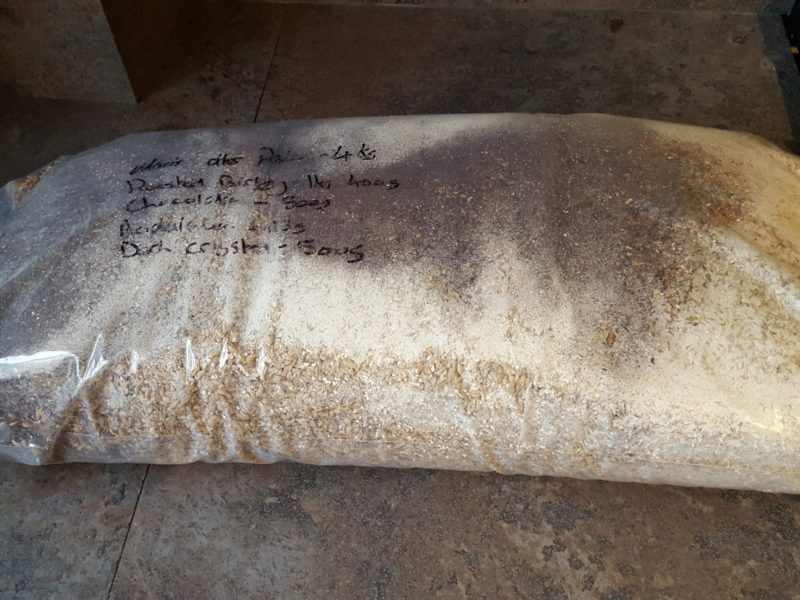
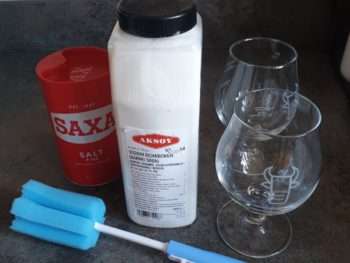


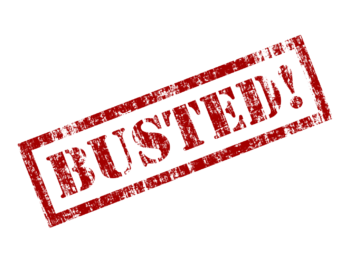
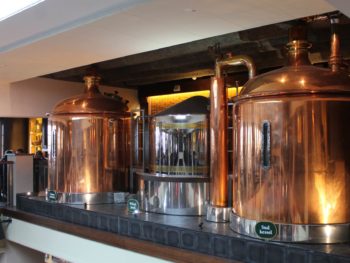
 A Complete Guide to Beer Bottling for the Homebrewer
A Complete Guide to Beer Bottling for the Homebrewer
